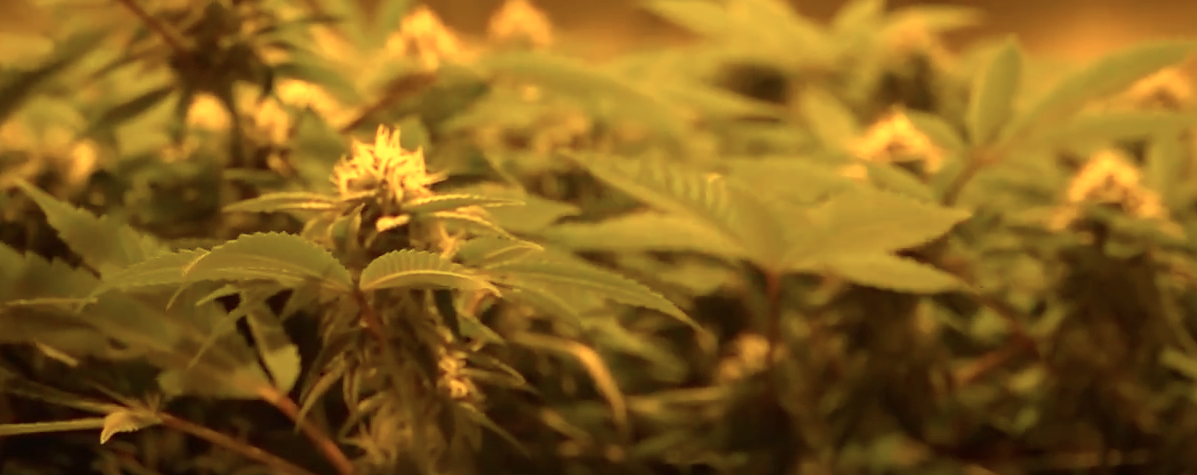Sweeping victories by New Mexico Democrats in the November midterm elections may open the door for the legalization of recreational marijuana in the state. Encouraging the industry was prioritized in the party’s political platform as a means of economic development.
“You look at Colorado, and they have mad money coming in from all the taxes that they put on marijuana,” said 23 year old Albuquerque restaurant worker Balaam Infante, a regular cannabis user.
Infante is in the majority of public opinion on the topic. Two polls, one in 2016 and one in 2018 , showed more than 60 percent of New Mexicans favored the legalization of recreational marijuana. This is consistent with national opinion. The Pew Research Center shows that about six-in-10 Americans say that marijuana should be legalized, a steady increase over the past decade.
New Mexico has an established medical marijuana industry. It has been growing since the state approved medical cannabis in 2007. According to Albuquerque Business First, there are 35 medical marijuana companies in New Mexico. The top five companies based on gross receipts in 2017 are New Mexico Top Organics- Ultra Health ($10.54 million), R. Greenleaf Organics Inc.($8.69 million), The Verdes Foundation ($6.11 million), MJ Express- O ($5.11 million) and the Minerva Canna Group Inc ($4.66 million).

If Colorado offers any indication, a recreational pot industry would be even more lucrative than the medical marijuana industry.
Colorado has been booming since its official legalization in 2014. According to the Colorado Department of Revenue, marijuana sales in Colorado have skyrocketed to an estimated $1.25 billion. It has also generated around $617 million in state taxes, much of which is pledged to schools.
In Colorado, medical cannabis is taxed at 2.9 percent, while recreational is taxed at a whopping 25 percent according to (Colorado Pot Guide).
According to Ultra Health’s CEO, Darren White, projections in New Mexico estimate $60 and $70 million in state tax revenue by legalizing marijuana for social use. The Tax Foundation projects a 15 percent retail tax on cannabis could raise an estimated $34 million for the state annually while a 25 percent tax could raise an estimated $57 million.
“We can use it to fix roads, schools, or hospitals — you know, better for the community,” Infante said.
New Mexico is at the bottom of national rankings when it comes to education, as well as being one of the poorest states.
“I do worry about my daughter getting a good education,” Infante said.
Moving toward greater legalization could also unlock more dollars for education and research of cannabis, according to Shawna Brown, community relations and marketing manager for the Verdes Foundation.
The Verdes Foundation, is a licensed non-profit cannabis producer that has a mission of giving back to the community they serve. Their aim to bolster the community through education, charitable giving and sponsorships.
“Medical cannabis helps so many people but it’s not always taken as seriously because there is not enough research done,” Brown said. She said what really would open avenues of research would be for the federal government to decriminalize marijuana.
Tabatha King, a medicinal marijuana user for over a year, wonders if recreational legalization would have any affect on her access to prescription weed.
“People (will) be using it for non medicinal needs,” King said. “The state can get a little bit more strict with the rules.”
However, if legalized, Brown says that keeping the medicinal program intact is a high priority of Verdes Foundation.
“We wanna see the medical program being protected, with adult use taking place,” Brown said. “Pretty much saying medical users are being protected as well as being taxed differently.”
Brown said the larger fear of legalizing marijuana is that it will lead to an increase in DUIs throughout the state.
“We need to push for the education of cannabis,” Brown said. “Education, starting now, so people are safe, and make the best decisions.”
In Colorado, marijuana-related traffic deaths increased by 154 percent between 2006 and 2014. Brown believes that education is the best way to prevent the problem.
In the past, Infante has been arrested for marijuana charges. He hopes to say goodbye to all that.
“The fact that I don’t have to smoke it without any paranoia or anything,” Infante said. “Just smoke it regularly, like I smoke a cigarette.”
Cade Guerrero and Daniel Zuniga can be contacted on Twitter @DanTheManj12 and @CadeGuerrero.